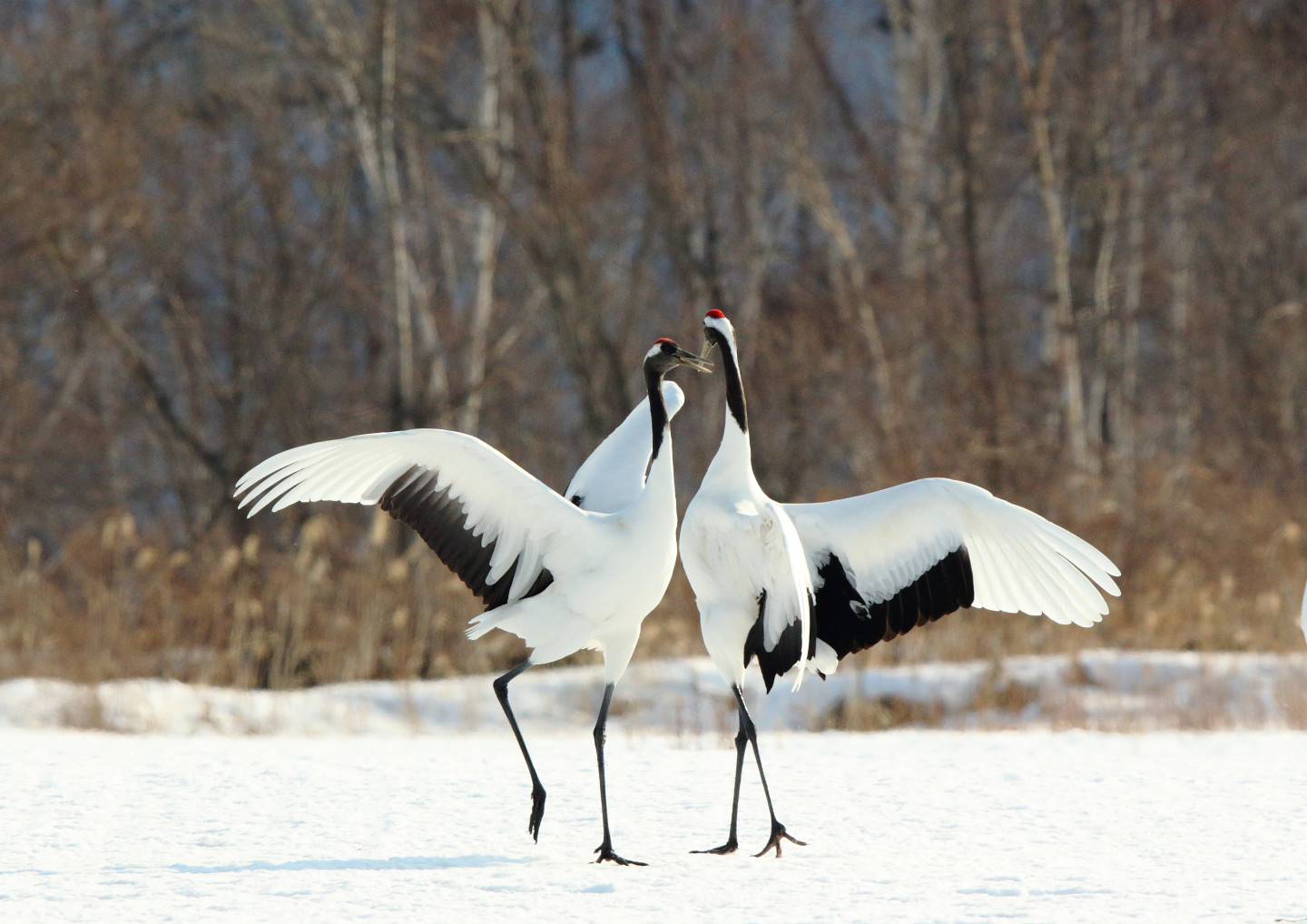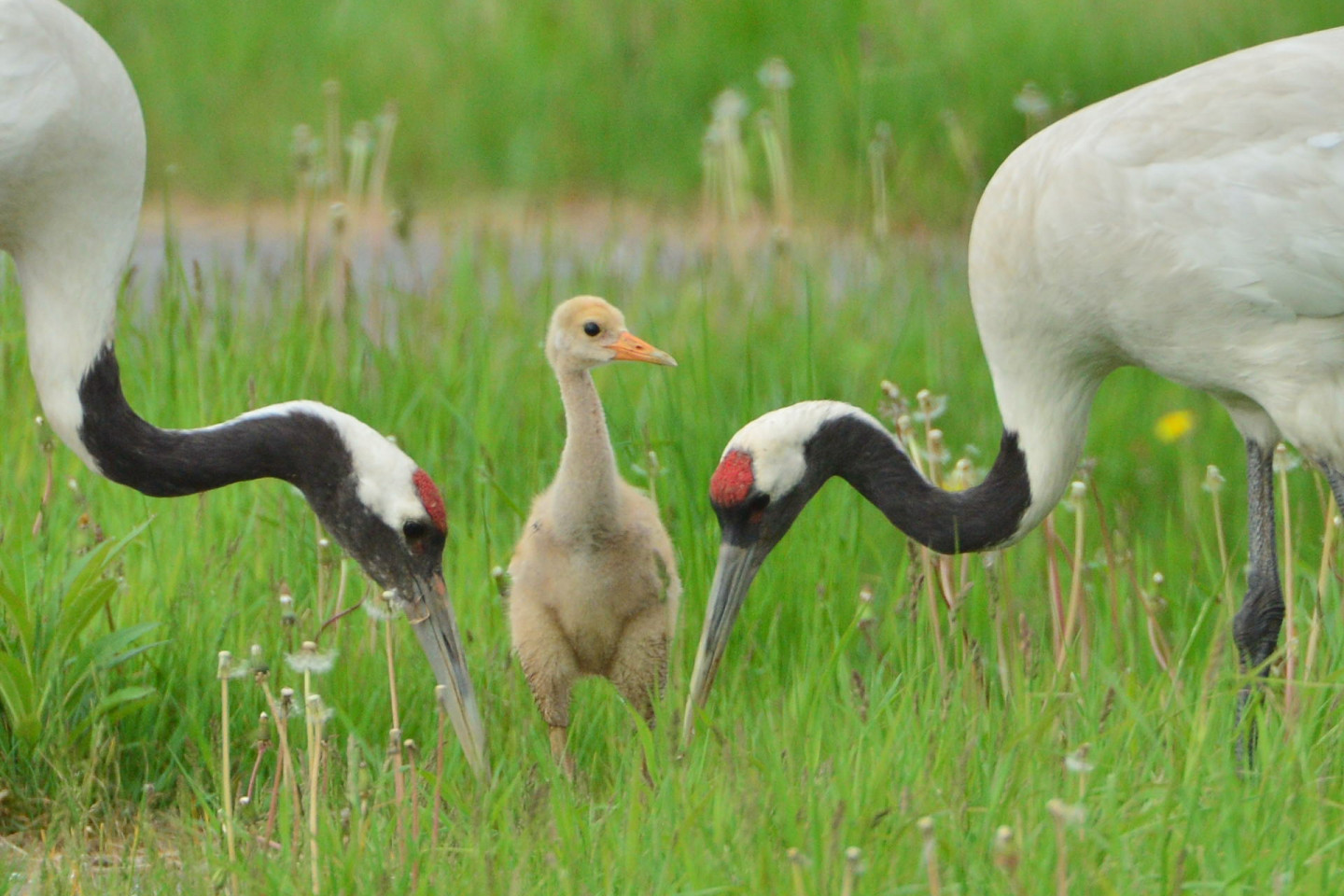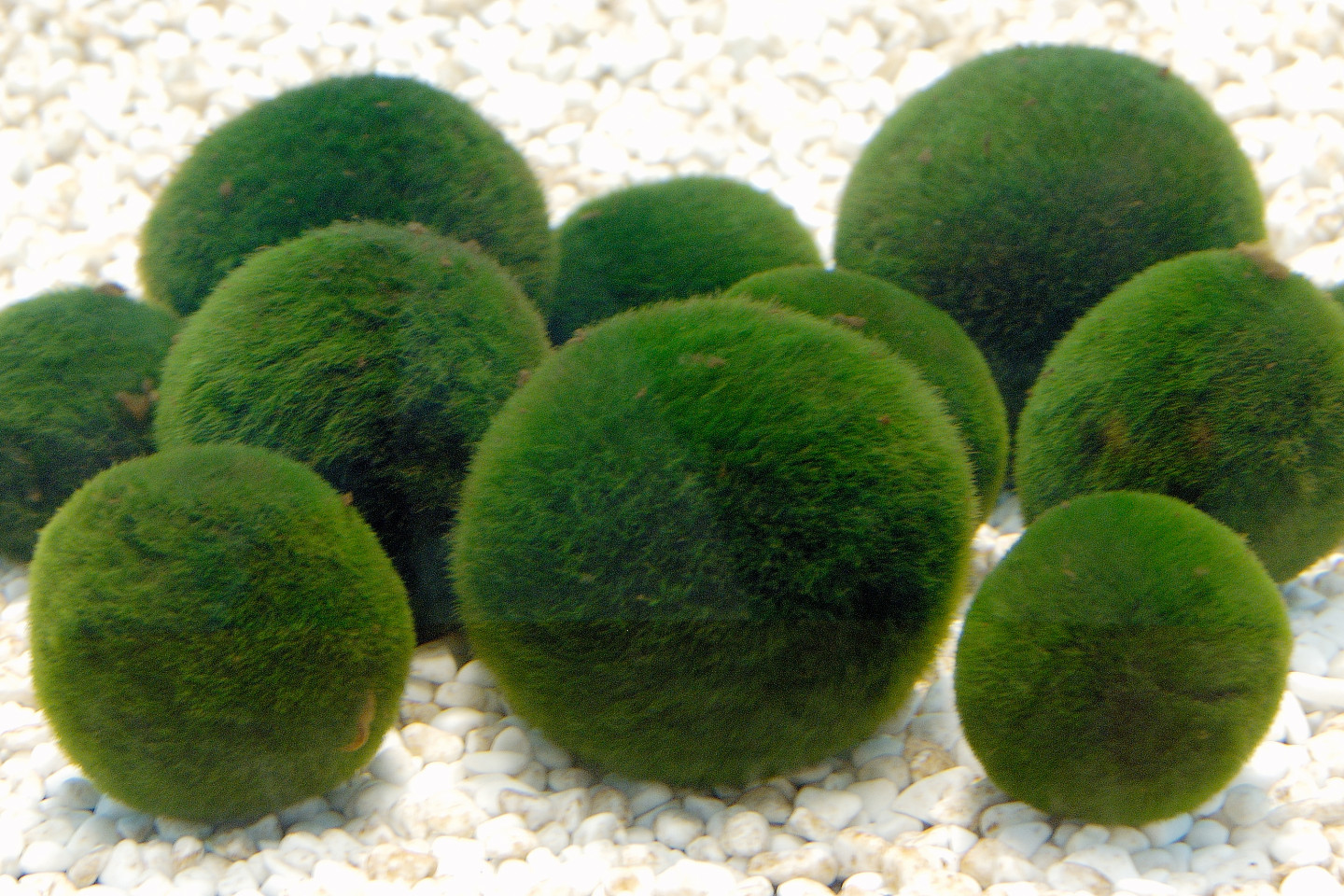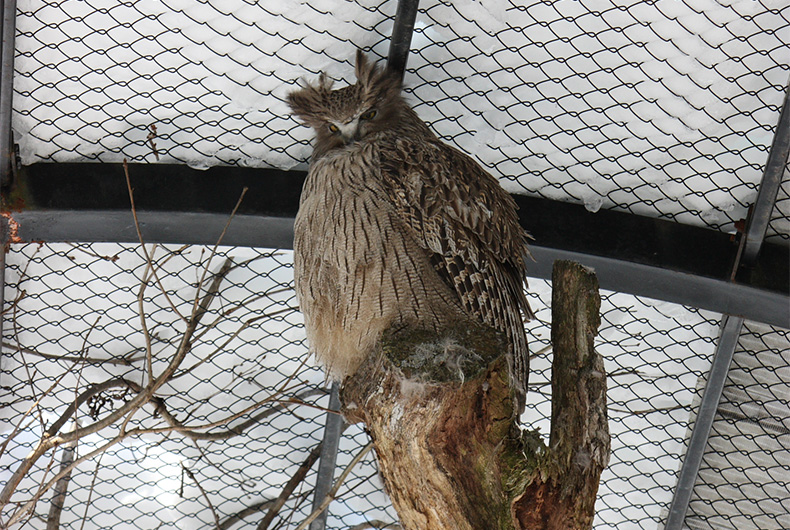Kushiro and Lake Akan’s tancho cranes and marimo—one of a kind in the world
 Kushiro Shitsugen and Lake Akan are both home to vibrant nature that is the habitat for a number of special natural monuments only found here. These include the tancho crane and marimo. Both are rare flora and fauna protected by the national government. Why are tancho cranes and marimo only found here?
Kushiro Shitsugen and Lake Akan are both home to vibrant nature that is the habitat for a number of special natural monuments only found here. These include the tancho crane and marimo. Both are rare flora and fauna protected by the national government. Why are tancho cranes and marimo only found here?
・Two National parks with differing ecosystems only found in Kushiro:http://en.kushiro-lakeakan.com/things_to_do/6389/
Tancho cranes
 The crane has been a familiar and auspicious symbol of long life since ancient times. The tancho cranes found in Eastern Hokkaido are one species of crane that is carefully protected and known by the Ainu people as the Sarorun Kamuy, or god of the wetlands.
The crane has been a familiar and auspicious symbol of long life since ancient times. The tancho cranes found in Eastern Hokkaido are one species of crane that is carefully protected and known by the Ainu people as the Sarorun Kamuy, or god of the wetlands.
However, as the colonization of Hokkaido ramped up, development took away their habitat and over hunting caused their population to dwindle. As a result, until 1924, the tancho crane was considered to be extinct. However, tancho cranes were discovered living in Kushiro Shitsugen Wetland. This means they were able to avoid extinction because they lived in the undisturbed nature of the wetlands. The tancho crane population was only a dozen or so in 1952 when they were designated a special natural monument. Today, the population has increased to more than 1,000. During the winter months, you may be able to catch glimpse of these majestic creatures when they come close to human habitation in search of food.
・The best place to view the tancho cranes, steward of the wetlands:http://en.kushiro-lakeakan.com/overview/3760/
・Kushiro Japanese Crane Reserve:http://en.kushiro-lakeakan.com/things_to_do/3778/
Marimo
 Marimo is the name given to a species of filamentous green algae that grows into a spherical shape. This form of algae is only found here in Japan, while only two of the same genetic line exists in the world today. Lake Akan is the only place in the world where these spherical balls can reach large sizes, which is believed to take more than 100 years. Research is still being conducted today on the ecology of this mysterious algae.
Marimo is the name given to a species of filamentous green algae that grows into a spherical shape. This form of algae is only found here in Japan, while only two of the same genetic line exists in the world today. Lake Akan is the only place in the world where these spherical balls can reach large sizes, which is believed to take more than 100 years. Research is still being conducted today on the ecology of this mysterious algae.
Marimo were first discovered in Lake Akan in 1898 by Takiya Kawakami, a student at the Sapporo Agricultural School. Kawakami gave the Japanese name marimo, which is formed by mari meaning play ball and mo a generic term for plants that grow in the water, because they looked like a round ball of algae. The marimo was designated a special natural monument in 1952. The marimo is considered to be an important nutrition source for the lake’s ecosystem, but in recent years the population is on the decline to the spread of invasive species like the signal crayfish. As a result, currently, Kushiro is working to have Lake Akan inscribed on the UNESCO World Heritage list.
・Marimo Exhibition and Observation Center:http://en.kushiro-lakeakan.com/things_to_do/2943/
・Lake Akan:http://en.kushiro-lakeakan.com/things_to_do/3804/
・Akan Kohan Eco Museum Center:http://en.kushiro-lakeakan.com/things_to_do/2937/
The rare wildlife of Eastern Hokkaido
 There are also a number of other rare flora and fauna found in Kushiro. The Hokkaido zone at Kushiro Zoo houses a number of rare wildlife considered to be on the verge of extinction. The zoo offers the chance to learn more about this wildlife and its habit up close.
There are also a number of other rare flora and fauna found in Kushiro. The Hokkaido zone at Kushiro Zoo houses a number of rare wildlife considered to be on the verge of extinction. The zoo offers the chance to learn more about this wildlife and its habit up close.
Natural monuments
・Crucian carp habitat in Lake Harutori – 1937 – [Lake Harutori] Crucian carp can be viewed at the Kushiro City Museum
・Black woodpecker – 1965 [Hokkaido] Black woodpecker may be sighted along the Bokke trail at Lake Akan
・Steller's sea eagle – 1970 [Hokkaido, etc.] Steller's sea eagles can be viewed at the Kushiro Zoo
・White-tailed eagle – 1970 [Hokkaido, etc.] White-tailed eagles can be viewed at the Kushiro Zoo
・Blakiston’s fish owl – 1971 [Hokkaido] Blakiston’s fish owls can be viewed at the Kushiro Zoo
・Siberian salamander – 1975 (Kushiro City) [Kushiro Shitsugen] Only a specimen can be viewed at the Kushiro City Museum
・Tussock grass – 1975 (Kushiro City) [Kushiro Shitsugen] Tussock grass can be observed along the Onnnenai wooden promenade
・Kushiro City Zoo:http://en.kushiro-lakeakan.com/things_to_do/3800/
・Bokke:http://en.kushiro-lakeakan.com/things_to_do/3806/
・Kushiro City Museum:http://en.kushiro-lakeakan.com/things_to_do/2901/
・Onnenai Visitor Center:http://en.kushiro-lakeakan.com/things_to_do/3772/
Visitors who read this article also read:
-
Kushiro Lake Akan
Various summer activities in the city, marshland, and Lake Akan
9,215 views
-
Kushiro Lake Akan Other
All-inclusive rental camping in Kushiro!
3,086 views
-
Kushiro
Songs about Kushiro that will tug at your heart strings with th…
5,380 views
-
Kushiro Lake Akan
In winter, tempts travelers with a variety of beautiful sights,…
11,477 views
 Related Keywords
Related Keywords

